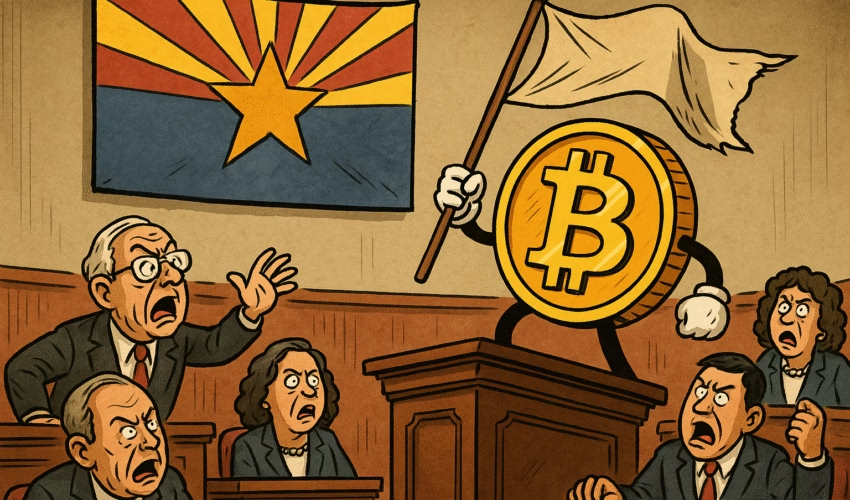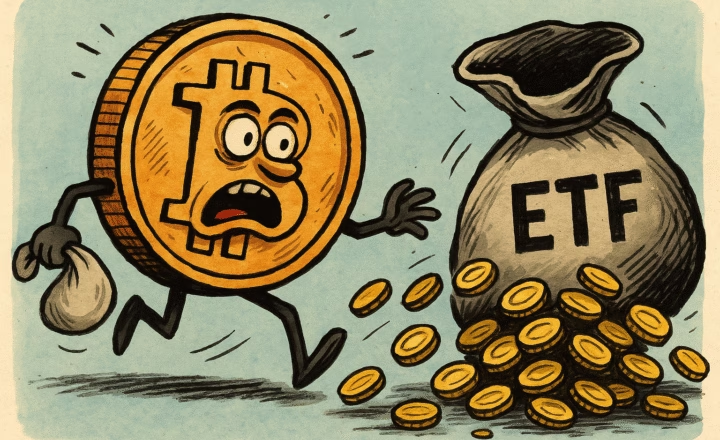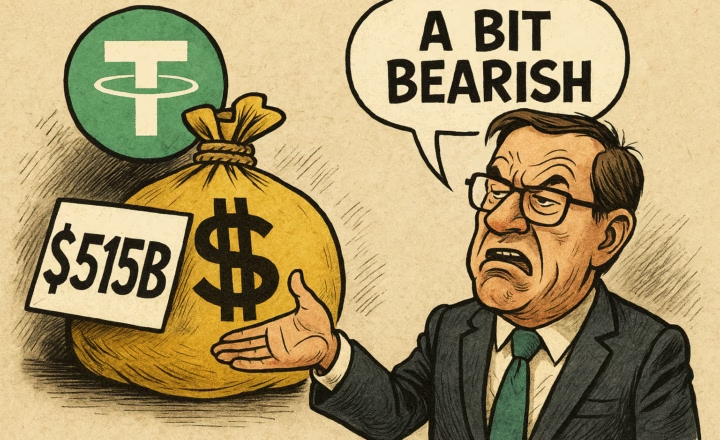House Bill 2324 Heads Back to State House for Potential Passage After Senate Approval
The Arizona Senate has revived a previously rejected proposal that would establish a state-managed Bitcoin reserve fund, pushing House Bill 2324 back to the Arizona House of Representatives for reconsideration. The motion to revive the bill passed in a 16-14 vote on Thursday, reigniting the state’s broader legislative push to integrate cryptocurrency into its financial systems.
🇺🇸 ARIZONA Update:
‘Bitcoin Reserve’ bill HB2324, which initially failed, has been revived after a ‘motion to reconsider’.
The bill would create a fund out of digital assets seized via criminal asset forfeiture.
It passed the Senate today 16-14, and is now in the House. pic.twitter.com/FKmLr8kSmJ
— Bitcoin Laws (@Bitcoin_Laws) June 19, 2025
The bill, initially defeated in the House on May 7, aims to formalize the seizure, management, and allocation of digital assets—especially those acquired through criminal forfeiture—and could make Arizona one of the first U.S. states to implement a structured Bitcoin reserve mechanism.
What House Bill 2324 Proposes
HB 2324, sponsored by Republican Senator Jeff Weninger, would create a “Bitcoin and Digital Assets Reserve Fund”, enabling Arizona to retain and allocate digital assets seized through criminal or civil forfeiture. Key elements of the bill include:
-
The first $300,000 of seized digital assets would go to the Attorney General’s Office.
-
Any amount above that would be split:
-
50% to the Attorney General’s Office
-
25% to the state’s general fund
-
25% to the new reserve fund
-
The bill also expands Arizona’s forfeiture laws to include digital assets and provides legal mechanisms for asset seizure and storage—even in cases where the asset owner is deceased, has fled, or cannot be located after a reasonable search.
Senate Vote Breaks Along Party Lines
Thursday’s vote largely followed party lines, with only one Republican, Senator Jake Hoffman, voting against the measure. The motion to reconsider the bill was filed by Senator Janae Shamp, who had initially voted “no,” as required by Arizona’s legislative rules.
The House must now vote again on the bill, where it needs a simple majority (31 of 60 votes) to move forward. Republicans hold 33 seats, giving the bill a narrow path to reach Governor Katie Hobbs’ desk.
Context: Arizona’s Mixed Stance on Bitcoin Legislation
The revival of HB 2324 comes amid a flurry of crypto-related legislative activity in Arizona this year. While Governor Hobbs has vetoed two crypto bills, she has also signed another into law, reflecting a nuanced position on digital assets.
✅ Signed into Law: HB 2749
On May 7, Governor Hobbs signed HB 2749, allowing the state to retain unclaimed cryptocurrency and place it in a Bitcoin and Digital Assets Reserve Fund. The law prohibits the use of taxpayer funds and allows custodians to stake crypto or receive airdrops for additional yield.
❌ Vetoed: SB 1025 and SB 1373
-
SB 1025, the Arizona Strategic Bitcoin Reserve Act, proposed allowing the state treasurer to invest up to 10% of state funds into Bitcoin.
→ Vetoed due to the risk of “untested investments like virtual currency,” according to Hobbs. -
SB 1373 aimed to create a “Digital Assets Strategic Reserve Fund.”
→ Hobbs cited market volatility as the reason for rejection, stating that such measures “do not make a prudent fit for general fund dollars.”
Momentum Builds Despite Vetoes
The legislative back-and-forth highlights a growing interest among Arizona lawmakers in positioning the state as a crypto-forward jurisdiction, especially with regard to Bitcoin as a strategic asset.
Supporters of HB 2324 argue that digital assets acquired through seizures should be retained and monetized rather than liquidated, allowing Arizona to benefit from long-term appreciation in asset value. The bill’s language also allows staking and airdrop participation, which could generate yield without requiring additional state spending.
What’s Next for HB 2324?
If the House approves HB 2324 in its reconsideration vote, the bill will head back to Governor Hobbs. While Hobbs has shown openness to limited crypto measures, it remains unclear whether she will sign this more expansive forfeiture and reserve framework, especially considering her previous vetoes on similar proposals.
Should the bill pass and be signed into law, Arizona would join a small but growing list of U.S. jurisdictions actively developing digital asset reserve frameworks, alongside states like Texas, which has explored similar custody programs through its state treasury.
Conclusion
Arizona’s reconsideration of House Bill 2324 demonstrates the state’s continuing interest in leveraging digital assets for public benefit, particularly through seized crypto linked to criminal cases. While legislative success is not guaranteed, the bill’s revival and ongoing support from Republican lawmakers underscore the momentum behind Bitcoin’s increasing role in state-level financial planning.
Whether or not the legislation ultimately becomes law, Arizona remains at the forefront of crypto policy experimentation, as it seeks to strike a balance between fiscal innovation and regulatory caution in a rapidly evolving digital economy.












